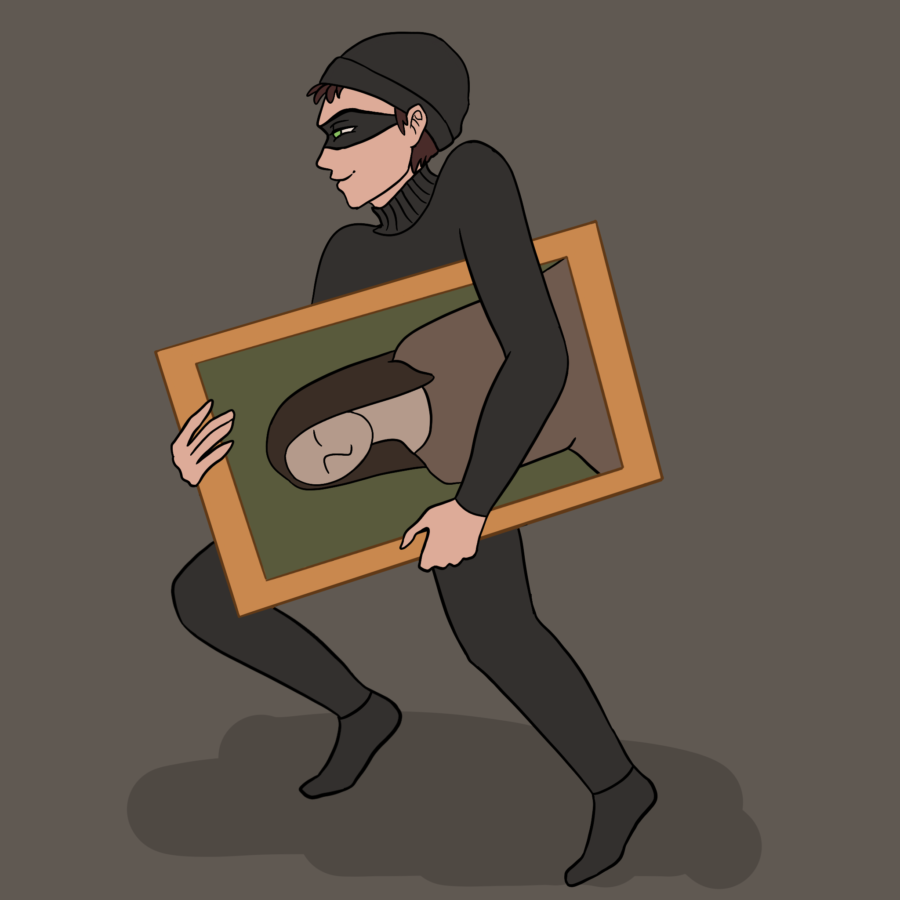By Sophia Pan, Copy Editor
The digital world is an ever-growing platform for creators large and small to share their artwork. In particular, I’ve found solace in the community of art Instagram, where all sorts of artists, from beginners to professionals, hone and post their craft.
Yet, while artists seem to have no problem supporting each other, I’ve noticed a concerning trend of disrespect toward the community.
Artists get their work stolen all the time. Back in the day, art theft was bandits sneaking into a museum and making off with the Mona Lisa. Nowadays, art theft is the constant reposting, editing, cropping, tracing, claiming and manipulation of an artist’s creation without giving credit for their hard work or asking first.
It’s painful to watch artwork get stolen and reposted by a fraud, especially when the repost gets more attention than the original, but unfortunately, the practice runs rampant.
I get it, though. I was an art thief once, too; I’d spot a gorgeous piece of artwork and go to show it to other people, blissfully unaware that I needed to credit the original artist. And I know it can be difficult to find the original artwork (especially if something has been reposted countless times), but if a reverse image search fails, there is a simple and morally upstanding solution: don’t repost the art.
And yes, it is still stealing, even if everyone else is doing it. In fact, it’s illegal — according to U.S. Copyright Law, art is under copyright protection from “the moment it is created and fixed in a tangible form that it is perceptible either directly or with the aid of a machine or device.” (Although if you want to sue based on that copyright, you’ll need to register, which is a whole other beast.)
Further, as if reposting wasn’t bad enough of an issue in the art community, artists also face issues with unlawful profiteering — for example, an incident happened last month involving musician Aaron Carter, younger brother of Nick Carter from the Backstreet Boys (who, by the way, filed a restraining order against his little brother, which should give you some idea of just what kind of a character he is).
The fiasco all started when Aaron Carter tweeted out a promotion for his line of $100 hoodies using a piece of artwork by Berlin-based artist Jonas Jödicke. When Jödicke pointed out that he had not granted Carter permission to use his work and reached out asking for due credit, Carter responded with vulgarity and dismissive insults including “You should take this as a compliment” and “Bro literally get over yourself.”
The situation with Carter isn’t an isolated one, either — artists are commercially exploited all the time. More recently, I stumbled upon an even more problematic instance of disrespect.
In lieu of the passing of Canadian artist Qing Han (@Qinniart) on Feb. 8, many people jumped on the opportunity to trace, steal and profit off of her artwork. For example, the brand Melon Notebooks took the opportunity to place Han’s artwork on notebook covers to sell. When called out, the brand posted “proof” that entailed a direct message thread in which Han pushed the conversation about making a business deal with her art off.
Acts like this are not only disgusting and disrespectful to the artist but extremely disrespectful to the artist’s friends and family, especially in the wake of said artist’s passing. And, while this is a somewhat extreme example of the lack of respect artists get online, it is only reflective of a wider problem.
So, the next time you see some pretty artwork and you want to share it, please don’t forget to credit the artist and ask for permission. On behalf of creators everywhere, I thank you for it. All we’re looking for is some respect for our time, effort and work.
Sophia Pan can be reached at [email protected]





















































































